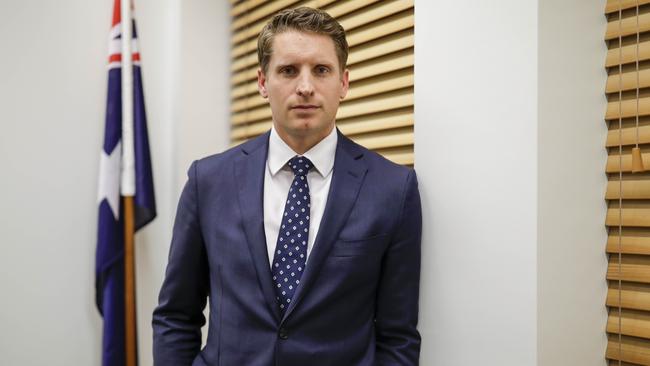Bishops angry over changes to spy laws
Catholic bishops are furious they were given fewer than four days to respond to changes to proposed spy laws.

Catholic bishops are furious they were given fewer than four days to respond to changes to proposed spy laws and have accused the government of not fully addressing concerns they would be classified as foreign agents of the Pope.
Universities, lawyers and charities gave evidence to a hearing of the parliamentary joint committee on intelligence and security yesterday, raising their fears that amendments to limit the scope of a new foreign interference transparency register do not go far enough.
The Australian Catholic Bishops Conference previously told The Australian the new scheme was based on a “misunderstanding” that the Catholic Church in Australia was affiliated with Vatican City.
The bishops said this still had not been addressed. “The definition of ‘foreign government’ includes ‘foreign government-related entity’ and ‘foreign government-related individual’. It is unclear if these definitions would include the Pope or other senior church officials,” the bishops said in their submission.
The bishops also said they did not get enough time to properly respond to the amendments and said the laws would still discourage “legitimate public policy comment by religious groups”.
Committee chairman Andrew Hastie cited the case of former Trump national security adviser Michael Flynn when he questioned a proposal by the Law Council for penalties under the scheme to be civil not criminal. Mr Flynn has pleaded guilty to lying to the FBI about his contacts with Russian ambassador Sergey Kislyak.
Among issues raised by the Law Council, its president, Arthur Moses, said it believed there was no need for criminal penalties as civil penalties would be just as effective as a deterrent.
The Labor Party also faces pressure over the bill, with unions voicing concerns. ACTU secretary Sally McManus said in a submission that the transparency bill gave the government of the day “unreasonable power to selectively conceal information”.
“The minister is empowered to make rules to further limit the information that is permitted to be publicly released,” the ACTU said in its submission. It said it was concerned the amendments may force it to register for advocating on behalf of foreign workers who were living in Australia or for collaborating with international unions or labour organisations.
The unions also objected to laws being enforced with criminal rather than civil penalties.
Universities Australia chief executive Catriona Jackson — along with several other organisations — thanked Attorney-General Christian Porter for amending the bill but said there was still concerned about broad definitions in the proposed laws.
“As outlined in our submission we’ve made to this hearing, we note that the remaining definition of ‘under an arrangement with’ might still capture a number of partnerships between Australian universities and international institutions,” Ms Jackson said.


